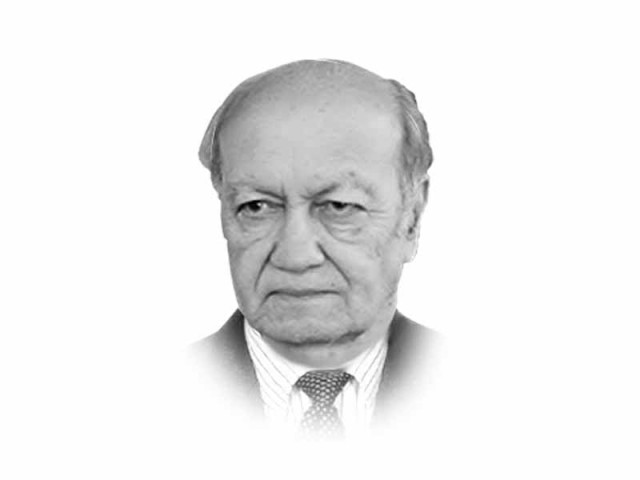Pakistan — not everything is lost
The most troubling aspects of our despair is that it leaves us unprepared for challenges we will face in coming years.

Pakistan — not everything is lost
Several factors have led to this downward slide. The problem is not merely of atmospherics but is the result of a combination of factors that are grounded in the country’s grim reality today. Some of the major policy and governance failures that have brought us to this pass could be linked to these factors: the inevitable consequence of a lack of investment in education and health; General Ziaul Haq’s disastrous legacy of using Islam to legitimise his rule, the consequences of which we continue to suffer. And, finally, our involvement in the war on terror after 9/11. The result has been domination of a warped national narrative by some fringe radical religious parties and a total absence of alternative ideologies by liberal and moderate forces. Our corrupt political leadership and civil society have both failed to mobilise society and provide a more humane vision of the state.
There has been a weakening of civil institutions by the military to retain grip on power as well as politicisation of state institutions by the civilian leadership to advance its narrow vested interests.
Central to this whole process is Pakistan’s inability to meet the challenge of modernisation in a globalised world. There are two ways of meeting that challenge: to compete and develop or to retreat and regress. Unfortunately, it is the second that we seem to have chosen.
Had Pakistan invested in education, our youth would be far more literate. Perhaps, the revolution we see elsewhere in the Muslim world might well have been led from here. The gloom we witness today is largely justified because our political leadership is too corrupt and too preoccupied with keeping itself in power to appropriate state resources and not invest effectively in a better future. They cannot provide inspirational leadership.
One of the most troubling aspects of today’s despair is that it is leaving us unprepared for the great challenges we will face in the coming years. Our population growth is unsustainable and if we continue to grow as we are, it is difficult to see how this country can sustain itself, let alone provide a better future for its citizens.
Crucial to understanding Pakistan’s troubled governance is the fact that the country has never had an institutionalised decision-making process for foreign policy and economic issues. Hence, there has been competition between civilian and military leaders for control of the national agenda; the confusion of authority has often led to poor decisions with damaging consequences for the country in the longer term. Exacerbating these problems is the ever-growing politicisation of the bureaucracy. This leads to decline in the capacity of the bureaucracy to provide objective and dispassionate advice to decision-makers and greatly undermines any meritocracy.
However, all is not lost: our judiciary, despite some inherent weakness, is acting to reassert the rule of law in many ways, which is fundamental to a just society. The media is robust and even parliament has come out with landmark constitutional amendments. And the military continues to retain high standards of professionalism despite great odds and overstretch.
The great challenge confronting Pakistani leaders is that they have to take some very uncomfortable decisions to steer the country away from these multiple crises. We, therefore, cannot afford the current civil-military divide and judiciary-executive tussle.
The question remains: will the next elections bring in a new set of leadership that will rise to the challenge and undertake bold reforms and take hard decisions? We have to wait and see.
Published in The Express Tribune, June 10th, 2012.















COMMENTS
Comments are moderated and generally will be posted if they are on-topic and not abusive.
For more information, please see our Comments FAQ